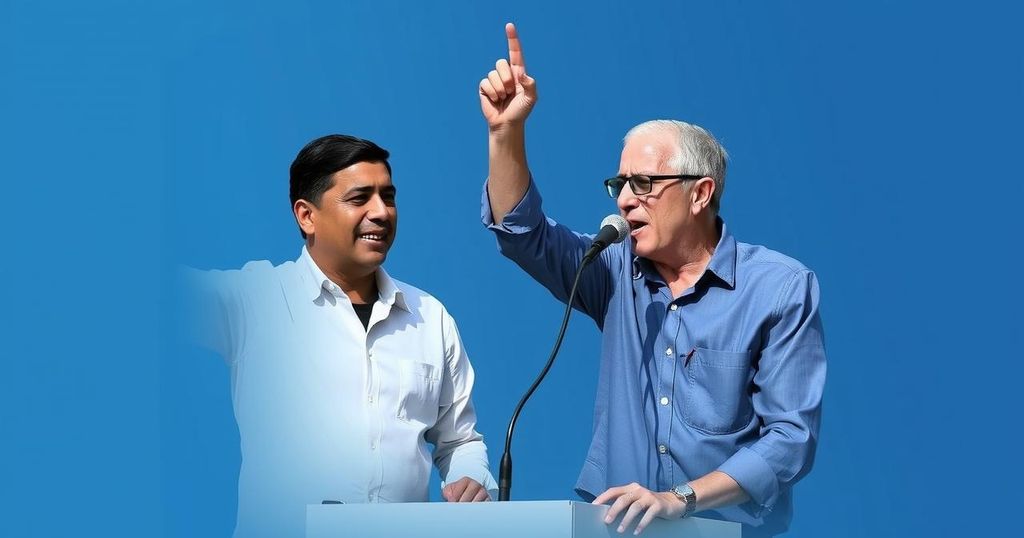Uruguay’s presidential election has turned into a fiercely contested run-off between Álvaro Delgado and Yamandú Orsi, following an inconclusive first round. The Broad Front coalition previously ruled for 15 years, while the National Party received substantial support from its conservative allies. With a significant portion of the electorate still undecided, crime and social issues dominate the political conversation in this pivotal election.
The presidential election in Uruguay is on the threshold of a critical run-off, transitioning from a relatively calm electoral season to a fiercely contested face-off between Álvaro Delgado of the National Party and Yamandú Orsi from the Broad Front coalition. Following the first round of voting held on October 27, where the Broad Front garnered 44 percent of the votes against Delgado’s 27 percent, the two candidates now emerge from a split Congress into a dead heat, stirring considerable electoral interest among the populace.
The close contest arises after neither candidate achieved a clear majority, and with approximately ten percent of voters remaining undecided, the outcome remains uncertain. The Broad Front, which governed for a significant fifteen years until 2019, is leveraging its prior successes including the legalization of several progressive reforms, while Delgado’s National Party aims to consolidate support with backing from other conservative factions, particularly the Colorado Party, which collectively received twenty percent of the votes in the initial election round.
The electoral discourse has been marked by a notable absence of polarizing rhetoric, a characteristic that sets Uruguay apart from other nations such as the United States. This has fostered a climate of political apathy, with both candidates focusing on issues related to crime and public safety rather than engaging in existential threats to democracy, as highlighted by Nicolás Saldías of the Economist Intelligence Unit. Voter dissatisfaction, primarily stemming from an increase in violent crime, further complicates the election dynamics as both candidates appeal to a public anxious for solutions.
Uruguay’s political landscape has shifted significantly since the center-left Broad Front coalition governed for fifteen consecutive years, introducing progressive policies such as legalized abortion and same-sex marriage. The conservative National Party’s rise to power in 2019, under Luis Lacalle Pou, reflected a broader trend in the region as many countries experienced shifts towards conservative governance. The current election marks a pivotal point as Uruguayan citizens engage in a second round of voting due to the inability of either major party to claim a majority in the prior election. Amidst rising concerns over safety and the impact of crime on daily life, citizens find themselves contemplating their choices between policy continuity and potential change.
The upcoming presidential run-off in Uruguay encapsulates a crucial moment for the nation, characterized by a close competition between Álvaro Delgado and Yamandú Orsi. As both candidates confront voter apprehension regarding crime and social issues, the election outcome may significantly impact Uruguay’s political trajectory due to the consolidation of conservative support and the challenges posed by public indecision. Ultimately, the election underscores the importance of voter engagement in shaping the future of the country’s governance.
Original Source: www.scmp.com






